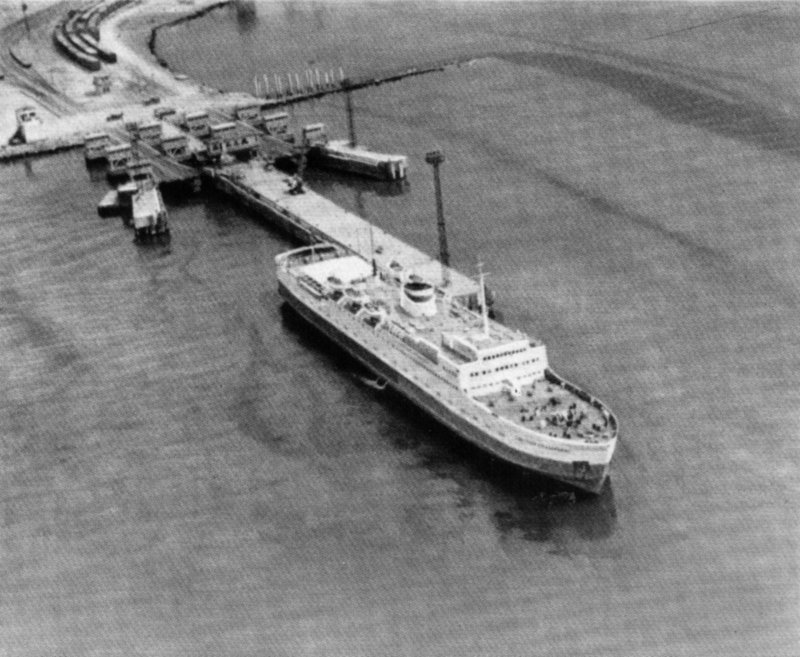"A ferry across the sea?"
"Yes."

Our helicopter appeared just as the loaded ferry was leaving its pier in Baku, moving away from the straight lines of the rails that ended abruptly at the water's edge. The railroad ends just as abruptly in Krasnovodsk, across the Caspian Sea. In twelve hours' time the ferry will nose into them. The panel on the stern will open and dozens of freight cars bound for Ashkhabad and Tashkent will roll out of the bowels of the ship and along the rails. After a stopover of three hours a new cargo of freight cars from Tashkent or Dushanbe will head across the sea to Baku. Previously, the contents of the cars was transferred into the ship's hold from the shore. Now a strip of railroad travels back and forth across the sea.
The ferry does not differ in appearance from any regular ship. If anything, its great size is uncommon here. It was built in Sormovo on the Volga. Its first trip down the Volga to the Caspian Sea was the most difficult, for it barely passed under the many bridges, even though its masts had been dismantled.
"The Caspian's a treacherous sea. What happens to the cars when a storm blows up?"
"Nothing. Look."
The captain took me through the echoing hold. It resembled a roundhouse. Each car was held fast by cables.
"We carry sheet glass and precast concrete to Tashkent and haven't had any complaints yet."
"What about passengers?"
"We can take on four hundred."
There are easy chairs, cabins, a salon and a restaurant.
"Is this a profitable business?"
"Each ferry shows a profit of a million rubles a year. And don't forget the savings in time and manpower. Chemicals, fertilizers, cotton and grain all had to go through a transshipping point before."
"Is this the only sea ferry in the country?"
"No. There's one in Kerch, and there's been talk of establishing a line between Sakhalin Island and the mainland. But there are a lot of difficulties involved."
"What about other countries?"
"Europe has a lot of automobile ferries and there are a lot like ours in Japan, where it's the most convenient way of joining up the railroads on the islands."
